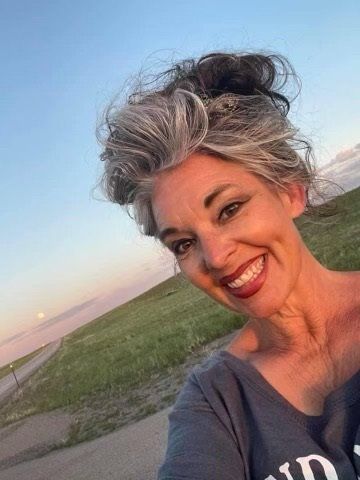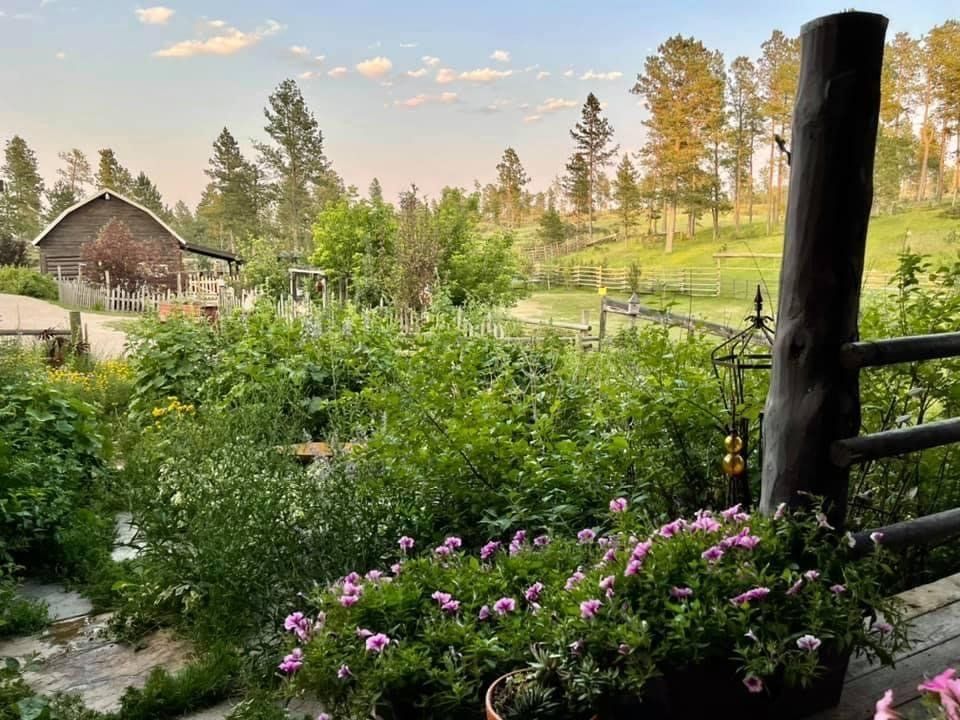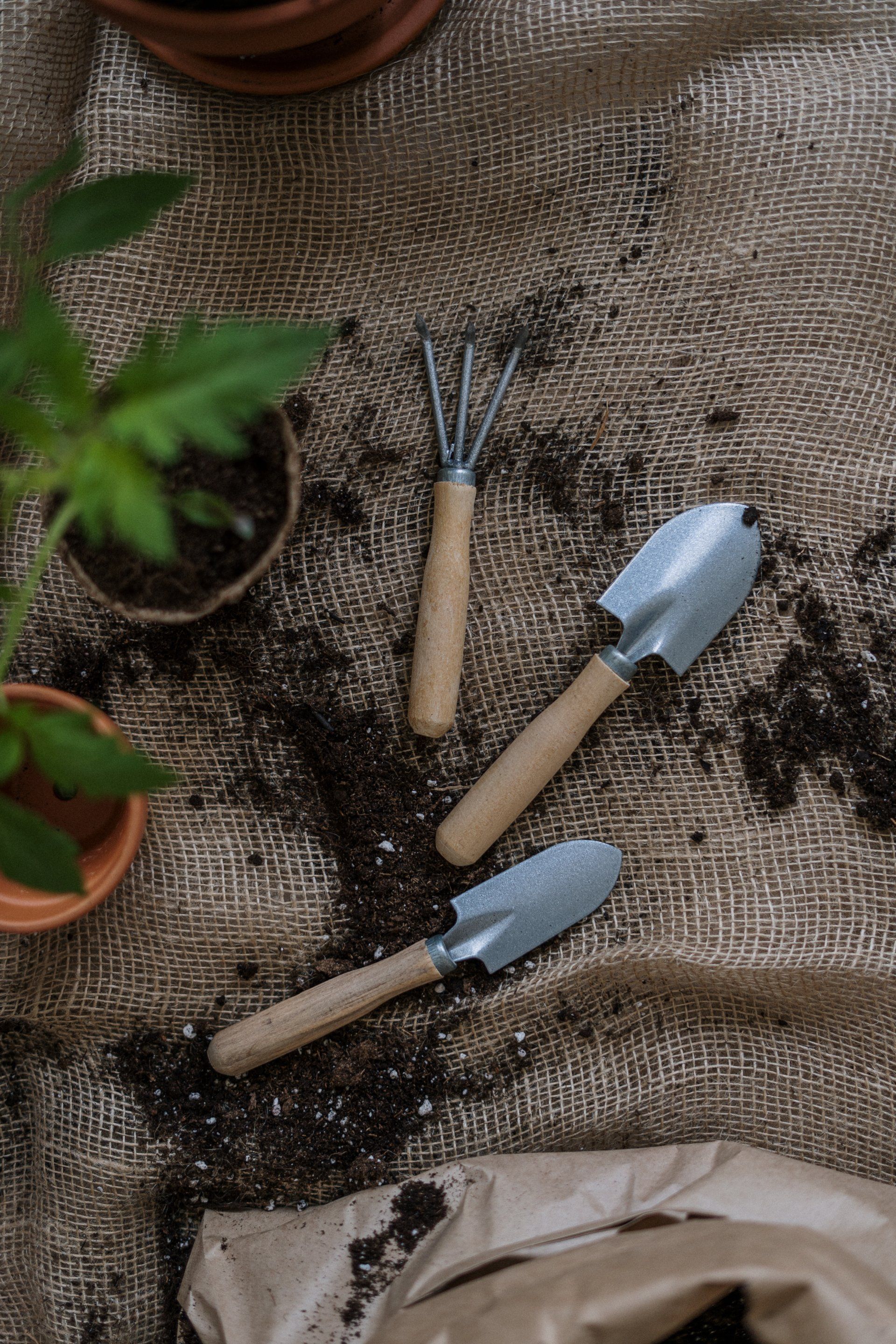A few miles outside of Custer, Joy Falkenburg pauses on a large stone bed during the heat of the summer, flowers spilling from the cracks, lilies dancing across the horizon, and she breathes it all in. Here she is in one of her favorite places on earth, a place she helped create. And that, she says, is just one of the beautiful things about gardening.
Falkenburg can be called many things — a physician, a mom of three, a master gardener — but those in her sphere would also call her a dreamer, a community builder, a woman of faith.
“Since I first wanted to be a doctor, I always listened to a strong inner voice,” she said. “I’m realizing now more that I’m a healer and a gatherer of people and being a doctor was part of that. But it’s part of a larger calling.”
Falkenburg, 48, always dreamt of owning a home near Custer. It was a seed planted in her mind when she attended Outlaw Ranch near Custer State Park in high school. Her dream came full circle when she purchased eight acres just outside of Custer more than a decade ago.
“There were only pine trees and a chokecherry bush,” she said, a perfect canvas for what she envisioned. Falkenburg and her husband, Matt, kicked off a journey to transform the place, first adding on to the house. Over the years, the couple built a pergola, a glass greenhouse, and a Potager garden, a raised, formal garden with a design visible from an aerial view. They also grew an orchard of fruit trees, 14 raised garden beds, a chicken coop, and a pig pen. They own alpacas and Mangalitsa pigs. The acreage is now called “Fresh Air and Iodine Farms,” a nod to her sister Jodi, who believed most ailments could be cured with some fresh air and iodine.
Falkenburg’s ties to the land run deep, but her family ties run deeper. Her parents own a ranch outside of Edgemont and her sister Joleen owns a ranch that borders it. Falkenburg owns a small herd of Jersey cows, and they winter on her sister’s land.
Falkenburg’s perspective on life was significantly shaped by her mother’s death at the age of 52 to polycystic kidney disease. Falkenburg has been diagnosed with the same disease, causing her to cut back her full-time work as a physician. It’s a job she’s loved for 23 years, the thread of helping others woven through both that work and her growing farm and acreage. Her plate is full, she admits, but with the right things.
“I am fully aware and accept that my life may be significantly shortened,” she said, and she chooses to focus on the present. “What you have right now is today,” she said. “Being in the garden, touching the earth, it keeps me in that place. When you’re in the garden, you’re noticing what is blooming or dying, and even the seasons. We should avoid getting stuck in the past or living for the future.” Her faith keeps her grounded as well, she said. “All of this is a gift from God,” she said. “He put me here to do something and help others and all the glory goes to Him, not me.”
Her advice for beginner gardeners is simple: just start. “People get paralyzed by details, but you don’t have to know everything right now,” she said. “But you don’t have to do what I did,” she said. “It’s your story. Maybe it’s succulent plants in the bay window. Just plant something that inspires you and makes you want to wake up in the morning and go see what’s changed.”
Falkenburg’s three children sew into the property as well, including helping with chores and operating the farm’s CSA (Community Sup-ported Agriculture) business by selling produce from their gardens. They also play a hand in Falkenburg’s new adventure of renting out part of their property and three nearby rental homes through Airbnb and Airbnb Experiences. People can come to the acreage to experience farm life and visit the gardens. She has also turned one of the rental homes into the Black Hills Sartori Retreat Center, where she will host retreats for rejuvenation and vitality. Passing on her legacy is as sweet to her as standing in her favorite place in the orchard. She hopes the same for others.
“There’s no better way for kids to connect with their parents than gardening,” she said. “It’s the idea that you can put a seed in the ground and it grows into something. When we learn to nurture something, it nurtures us.”





